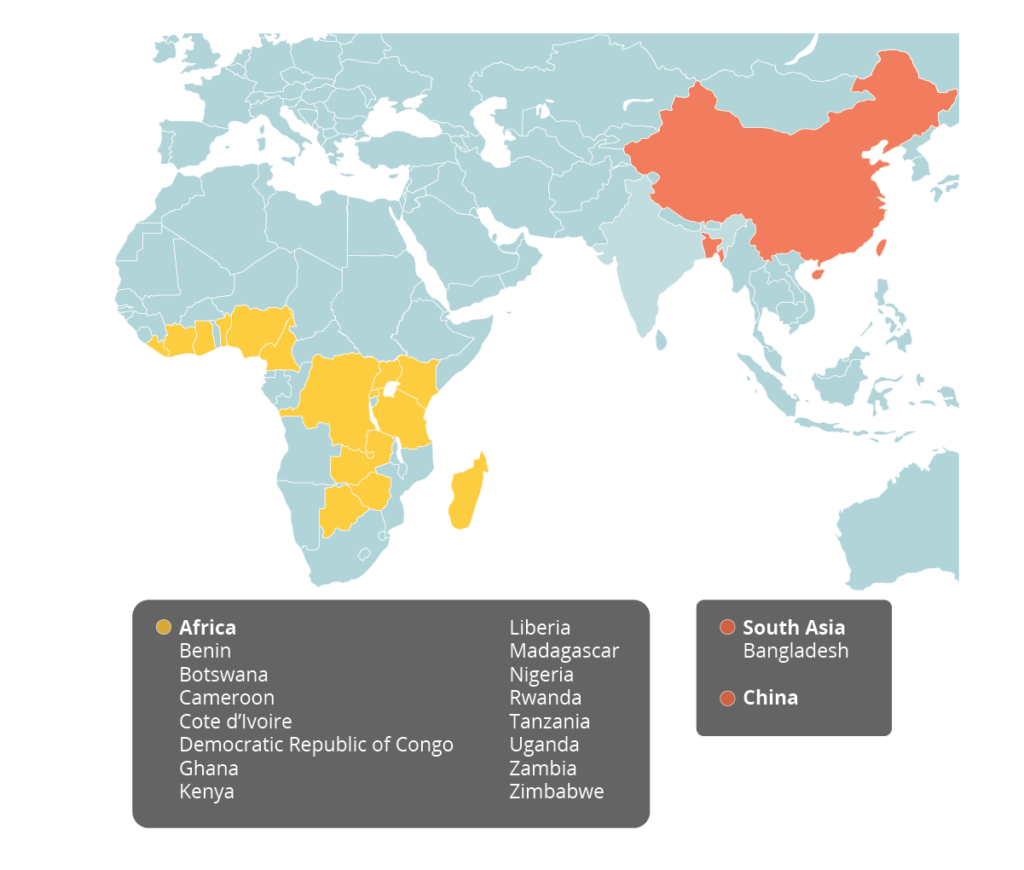Cap-Net and ANSI Partner to Support National Adoption of Non-Sewered Sanitation Standards in Africa and Asia.
A new partnership between Cap-Net UNDP and the American National Standards Institute (ANSI) will deliver blended training in 17 countries in Africa and Asia to encourage the national adoption and use of two international non-sewered sanitation standards, ISO 24521 and ISO 30500. These trainings will target national standards bodies in collaboration with relevant ministries, local governments, and the private sector.
The two standards from the International Organization for Standardization (ISO) serve to improve health, reduce the environmental impact of wastewater treatment, and offer affordable options for users and communities to help change the lives of the approximately 2.4 billion people who live without basic sanitation. Whereas ISO 24521 optimizes existing wastewater services, ISO 30500 encourages the development of new technologies and solutions (non-sewered sanitation options) as current technologies are failing to address underlying challenges behind the lack of sanitation, including poverty, infrastructure and resources.
The ANSI—Cap-Net partnership helps to support the United Nations Sustainable Development Goals (SDG) 6.2 and 6.3 by providing adequate access to equitable sanitation and hygiene and by improving water quality. The alliance currently focuses on 17 countries in Africa and Asia, and is open to more through activating the Cap-Net networks: AGWNet (Africa wide), CBHydroNet (Congo Basin), NBCBN (Nile Basin), NileIWRMnet (Nile Basin), WANet (West Africa), WaterCap (Kenya), WaterNet (SADC), Cap-Net Bangladesh and GWP China.
Cap-Net will adapt, customise, and translate ISO 24521 and ISO 30500 training materials for country-level applicability, concentrating its efforts on achieving increased awareness and training by mobilizing the relevant Cap-Net networks. Cap-Net will also facilitate monitoring and evaluation for the implementation of the programme.
“Cap-Net will leverage this important work through mobilising its affiliated networks in Africa and Asia and by providing an enhanced learning experience through blended training and material adaptation and contextualisation in three languages: Mandarin, French, and English,” said Dr. Themba Gumbo. “The approach entails a combination of training conducted in the Cap-Net Virtual Campus with opportunities for interaction online involving more non-target countries, and traditional face-to-face training methods for target countries,” explained Dr. Themba Gumbo.
This approach will promote national ownership, by involving identified national trainers or facilitators within the Cap-Net network, growing national expertise and community of practice, and linking training and awareness to on-going national processes and action plans on sustainable sanitation, with the overall goal of national adoption and use of the two standards.
The purpose of ISO 30500 is to support the development of stand-alone sanitation systems designed to address basic sanitation needs and promote economic, social, and environmental sustainability through strategies that include minimizing resource consumption (e.g. water, energy) and converting human excreta to safe output. ISO 24521 aims to improve efficiency and safely manage existing wastewater services.
“ANSI is honored to partner with Cap-Net to launch trainings on these two important ISO non-sewered sanitation standards and support their broad implementation,” said Joseph Tretler, Jr., ANSI vice president of international policy. “When adopted and used together, these standards have the potential to revolutionize the sanitation sector by addressing existing challenges and preparing for future solutions.”

